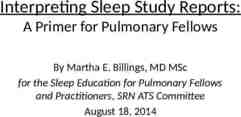The DNP Healthcare Leader: Transformation of Practice Elizabeth F.
13 Slides509.50 KB

The DNP Healthcare Leader: Transformation of Practice Elizabeth F. Ellis DNP, RN, FNP-BC Chief of Advanced Practice Memorial Hermann Texas Medical Center Assistant Clinical Professor University of Texas Health Science Center at Houston-School of Nursing October 10, 2008 Doctor of Nursing Practice Conference Memphis, TN

Objectives To discuss the implications for utilizing DNP graduates as clinical Leaders To identify the role and responsibilities of the DNP clinical leader To identify the challenges and lessons learned of a practicing DNP Clinical Leader

Creating the Transition Practice doctorate needed in nursing DNP becomes the highest level of advanced nursing practice DNP creates clinical experts and leaders DNP begins to impact practice change

Healthcare Challenges National concern for patient safety Transforming care at the bedside Need for translational research Development of evidenced based practice Interdisciplinary practice models Patient care across the continuum

DNP Education: The Right Choice Structured clinical experience Broader evidenced based scope of practice Translational Research Array of analytical, theoretical, philosophical and evaluative processes

Partnership Created Impacted by patient satisfaction Increased gaps in patient care Required new models of care Increased efforts to improve patient safety Improved core measure outcome Improved documentation

Chief of Advanced Practice As far as we know this is a national first Places DNP at level equivalent to Chief of Medicine Transform patient care and APN/PA practice Strengthens bridge between MHH, SON and Med School Innovative Practice Model Signifies nursing at the highest clinical level

Role of Chief Support and Leader in clinical, create academic, scholarship administrative, opportunities community and Foster institutional policy Relationships making arenas Sustain APP Change agent-new program models of care

Lessons Learned Establish Chief title Identify NP and level of administrator as hierarchy from start major champion Define distinct Identify lead NP, department of PA, and CRNA Advanced Practice Providers

Lessons Learned Establish MD Champion from start Defined Budget prior to start Defined inpatient clinical practice for the Chief Service Line MD Champions

Where Are We Going DNP Hospitalist model DNP Intensivist model Inpatient billing model Sharing the model

References Accreditation Council for Graduate Medical Education.(2002) Report of The ACGME work group on resident duty hours. Retrieved May 7, 2008 from http://www.acgme.org/DutyHours/dutyHoursCommonPR.asp Buppert, C. (2006). Billing physician services provided by nurse practitioners in specialist’s office, hospitals, nursing facilities, homes, and hospice. Bethesda, MD: Law office of Carolyn Buppert. Ellis, E., Mackey, T. Buppert, C., & Klingensmith, K. (2008). Acute Care Nurse Practitioner Billing Model Development. Submitted For Publication. Fuchs, J. & Ellis, EF. (2008, June). Advanced Practice Nursing Clinical Leaders Special Interest Group. Presentation conducted at the conference of the American Academy of Nurse Practitioners, Washington, DC. Lake, D. (2007).UT School of Nursing and Memorial Hermann Hospital creating new TMC partnership with Chief of Advanced Practice position. Retrieved May 7, 2008 from http://publicaffairs.uth.tmc.edu/media/newreleases/nr2007/sonpartnership.ht ml.

References Cont. Larkin, H. (2003) The case for nurse practitioners. Hospitals & Health Networks [Internet] 2003, August [cited 2007, April 17]; Retrieved April 17, 2007, from http:www.hospitalconnect.com. Mundinger, M., Kante, RL., Lenz, ER, Totten AM, Tsai WY, Cleary PD, et al. (2000). Primary Care Outcomes in patients treated by nurse practitioners or physicians: a randomized trial. JAM, 283(1):59-68. Safriet, B. (1992). Healthcare dollars and regulatory sense: The role of advanced practice nursing. Yale J Regulation, 9:417-88. Todd, B., Resnick A, Stuhlemmer, R, & Mullen, J. (2004). Challenges of the 80-hour resident work rules: Collaboration between surgeons and nonphysician practitioners. Surgical Clinics of North America; 84:1573-1586.






